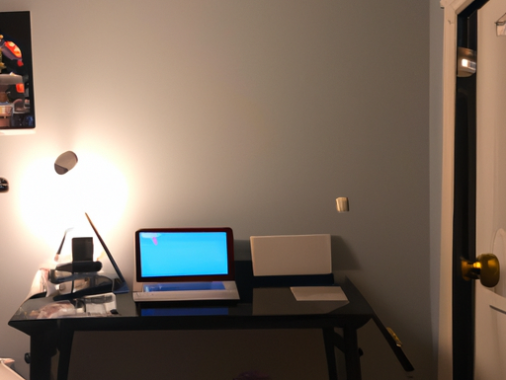-
Table of Contents
- Introduction
- The Potential Risks of Reflexology
- Is Reflexology Safe?
- Understanding the Side Effects of Reflexology
- The Dangers of Unqualified Reflexology Practitioners
- The Disadvantages of Reflexology for Certain Health Conditions
- The Limitations of Reflexology for Pain Relief
- The Controversy Surrounding Reflexology and Its Effectiveness
- Q&A
- Conclusion
Introduction
Reflexology is a type of alternative medicine that involves applying pressure to certain areas of the body to relieve pain and improve overall health. While reflexology is generally considered to be a safe and effective form of treatment, there are some potential disadvantages that should be considered before beginning a reflexology treatment. This article will discuss the potential disadvantages of reflexology, including potential risks, lack of scientific evidence, and potential side effects.
The Potential Risks of Reflexology
Reflexology is a form of alternative medicine that involves applying pressure to specific points on the feet, hands, and ears. It is believed to be a safe and effective form of treatment for a variety of conditions, including stress, anxiety, and pain. However, there are some potential risks associated with reflexology that should be considered before undergoing treatment.
The most common risk associated with reflexology is the potential for injury. If the pressure applied to the reflex points is too strong, it can cause bruising, swelling, or even nerve damage. Additionally, if the reflexologist is not properly trained, they may not be able to identify the correct reflex points, which can lead to incorrect treatment.
Another potential risk of reflexology is the possibility of infection. If the reflexologist does not use proper hygiene techniques, such as washing their hands and using clean instruments, there is a risk of spreading bacteria or viruses. Additionally, if the reflexologist does not use gloves, there is a risk of transmitting skin infections.
Finally, reflexology may not be suitable for everyone. People with certain medical conditions, such as diabetes, should consult their doctor before undergoing reflexology. Additionally, pregnant women should avoid reflexology, as it may cause contractions or other complications.
In conclusion, reflexology is generally considered to be a safe and effective form of treatment for a variety of conditions. However, it is important to be aware of the potential risks associated with reflexology before undergoing treatment. It is recommended that people consult their doctor before undergoing reflexology, especially if they have a medical condition or are pregnant.
Is Reflexology Safe?
Reflexology is a safe and non-invasive form of alternative medicine that has been used for centuries to promote relaxation and healing. It is based on the principle that certain areas of the feet, hands, and ears correspond to specific organs and systems in the body. By applying pressure to these areas, reflexologists can help to reduce stress, improve circulation, and promote overall health and wellbeing.
Reflexology is generally considered to be safe for most people. It is not recommended for those with certain medical conditions, such as diabetes, heart disease, or circulatory problems. It is also not recommended for pregnant women or those with active infections.
When performed by a qualified and experienced reflexologist, reflexology is a safe and effective way to promote relaxation and healing. It is important to find a reflexologist who is properly trained and certified in the practice. It is also important to discuss any medical conditions or medications you are taking with your reflexologist before beginning treatment.
Overall, reflexology is a safe and non-invasive form of alternative medicine that can be used to promote relaxation and healing. It is important to find a qualified and experienced reflexologist and to discuss any medical conditions or medications you are taking before beginning treatment.
Understanding the Side Effects of Reflexology
Reflexology is a form of alternative medicine that involves applying pressure to specific points on the feet, hands, and ears. It is believed to be a form of healing that can help to reduce stress, improve circulation, and promote relaxation. While reflexology is generally considered to be safe, there are some potential side effects that should be taken into consideration.
The most common side effect of reflexology is soreness in the areas where pressure was applied. This is usually temporary and should subside within a few hours. Other potential side effects include headaches, nausea, and fatigue. These symptoms may be caused by the release of toxins from the body during the reflexology session.
In some cases, reflexology may cause an increase in blood pressure. This is usually due to the stimulation of the nervous system. If you have high blood pressure, it is important to discuss this with your reflexologist before beginning treatment.
It is also possible to experience an allergic reaction to the oils or lotions used during a reflexology session. If you have sensitive skin, it is important to let your reflexologist know before beginning treatment.
Finally, reflexology may cause a temporary increase in pain in the areas where pressure was applied. This is usually due to the release of endorphins, which are hormones that help to reduce pain.
Overall, reflexology is generally considered to be safe and effective. However, it is important to be aware of the potential side effects and discuss any concerns with your reflexologist before beginning treatment.
The Dangers of Unqualified Reflexology Practitioners
Reflexology is a form of alternative medicine that involves applying pressure to specific points on the feet, hands, and ears to promote relaxation and healing. While reflexology is generally considered safe, it is important to be aware of the potential risks associated with unqualified practitioners.
First, unqualified reflexology practitioners may not have the necessary training and experience to provide safe and effective treatments. Without proper training, practitioners may not be able to identify and address underlying health conditions that could be causing the symptoms. Additionally, they may not be aware of the potential risks associated with reflexology, such as nerve damage or infection.
Second, unqualified practitioners may not use the proper techniques or equipment. For example, they may not use the correct amount of pressure or use the wrong type of massage oil. This can lead to an ineffective treatment or even injury.
Finally, unqualified practitioners may not be aware of the latest research and developments in the field of reflexology. This means that they may not be able to provide the most up-to-date treatments or advice.
It is important to ensure that any reflexology practitioner you choose is qualified and experienced. Ask for references and check their credentials. Additionally, make sure that they are using the proper techniques and equipment. By taking these steps, you can help ensure that you receive a safe and effective treatment.
The Disadvantages of Reflexology for Certain Health Conditions
Reflexology is a form of alternative medicine that involves applying pressure to specific points on the feet, hands, and ears. It is believed to be a holistic approach to health and wellness, as it is thought to stimulate the body’s natural healing processes. While reflexology is generally considered to be safe and beneficial, there are certain health conditions for which it may not be suitable.
One of the main disadvantages of reflexology is that it is not suitable for people with certain medical conditions. For example, people with diabetes should not receive reflexology, as it can cause a sudden drop in blood sugar levels. Additionally, people with circulatory problems, such as varicose veins, should not receive reflexology, as it can cause further damage to the veins. People with certain skin conditions, such as eczema, should also avoid reflexology, as it can irritate the skin.
Another disadvantage of reflexology is that it is not suitable for people who are pregnant or nursing. Reflexology can cause contractions in the uterus, which can be dangerous for pregnant women. Additionally, reflexology can cause the release of hormones that can affect the production of breast milk in nursing mothers.
Finally, reflexology is not suitable for people who are taking certain medications. Certain medications, such as blood thinners, can interact with reflexology and cause serious side effects. Therefore, it is important to consult with a doctor before receiving reflexology if you are taking any medications.
In conclusion, reflexology is generally considered to be safe and beneficial. However, there are certain health conditions for which it may not be suitable. People with diabetes, circulatory problems, skin conditions, and those who are pregnant or nursing should not receive reflexology. Additionally, people who are taking certain medications should consult with a doctor before receiving reflexology.
The Limitations of Reflexology for Pain Relief
Reflexology is a form of alternative medicine that involves applying pressure to specific points on the feet, hands, and ears. It is believed that this pressure can help to reduce stress and improve overall health. While reflexology has been used to treat a variety of conditions, it is most commonly used to provide relief from pain.
However, it is important to note that reflexology is not a cure-all for pain relief. While it may provide some relief, it is not a substitute for medical treatment. In addition, reflexology is not a substitute for lifestyle changes that can help to reduce pain. For example, if a person is suffering from chronic pain, they should still seek medical advice and make lifestyle changes such as exercising regularly and eating a healthy diet.
Furthermore, reflexology is not suitable for everyone. People with certain medical conditions, such as diabetes, should not use reflexology as it can cause further complications. Additionally, reflexology should not be used on pregnant women or people with certain skin conditions.
Finally, reflexology is not a substitute for professional medical care. If a person is experiencing severe or persistent pain, they should seek medical advice from a qualified healthcare professional.
In conclusion, reflexology can provide some relief from pain, but it is not a substitute for medical treatment or lifestyle changes. It is also not suitable for everyone and should not be used as a substitute for professional medical care.
The Controversy Surrounding Reflexology and Its Effectiveness
Reflexology is a form of alternative medicine that has been used for centuries to treat a variety of ailments. It is based on the idea that certain areas of the body, known as reflex points, are connected to other parts of the body and can be manipulated to bring about healing. While reflexology has been used for centuries, it has recently become a popular form of alternative medicine in the Western world.
However, there is much controversy surrounding reflexology and its effectiveness. Many medical professionals are skeptical of its claims and believe that it is nothing more than a placebo effect. They argue that there is no scientific evidence to support the claims that reflexology can be used to treat any medical condition.
On the other hand, proponents of reflexology argue that it is a safe and effective form of treatment. They point to studies that have shown that reflexology can reduce stress, improve circulation, and even reduce pain. They also argue that it can be used to treat a variety of conditions, including headaches, digestive issues, and even depression.
Ultimately, the controversy surrounding reflexology and its effectiveness is likely to continue. While some medical professionals remain skeptical, others believe that it is a safe and effective form of treatment. Ultimately, it is up to the individual to decide whether or not they believe in the power of reflexology.
Q&A
1. Reflexology can be time consuming and expensive.
2. It is not a substitute for medical care and should not be used to diagnose or treat medical conditions.
3. It can be uncomfortable for some people, especially those with sensitive feet.
4. It can be difficult to find a qualified practitioner.
5. It may not be covered by health insurance.
6. It may not be effective for everyone.
7. It may not be suitable for people with certain medical conditions, such as diabetes or circulatory problems.
Conclusion
In conclusion, reflexology has some potential disadvantages, such as the risk of infection, the potential for injury, and the lack of scientific evidence to support its effectiveness. However, it is important to note that reflexology is generally considered safe and may provide some relief from certain conditions. It is important to speak with a healthcare professional before beginning any type of treatment.




